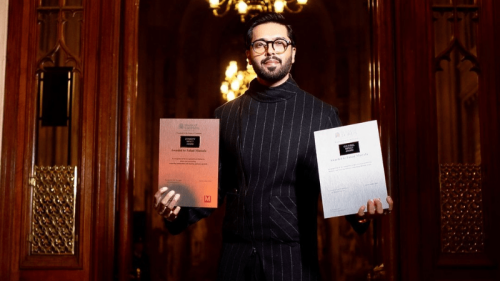KARACHI: The power of radio in reaching the widest audience in the world was recognised on Wednesday at the Arts Council Karachi where famous broadcasters and radio channel owners gathered to mark World Radio Day.
This year’s theme, as given by Unesco, is ‘dialogue, tolerance and peace’.
According to UN Secretary General António Guterres, whose message was played for the audience, “Radio is a powerful communication tool and a low-cost medium … specifically suited to reach remote communities and vulnerable people: the illiterate, the disabled, women, youth and the poor, while offering a platform to intervene in the public debate, irrespective of people’s educational level. Furthermore, radio has a strong and specific role in emergency communication and disaster relief.”
Noted broadcasters gather in Karachi to mark World Radio Day
Actor Munawwar Saeed recalled his 60-year association with radio and how his love for the medium had only increased over the years and never diminished.
“When the radio made its entry in the subcontinent, the first thing it did was to gather all the educated and knowledgeable people and included them in the fold. And then radio allowed this precious knowledge and information of these individuals to be spread among the common man. This is a big service radio has done for us.”
One thing radio channels today needed to take care of, he added, was to ensure that regardless of which language was being spoken, the pronunciation should be correct and so should the usage, which however, was being neglected on air.
Former senator Javed Jabbar, who is also a noted broadcaster, recalled how in 2006 he had organised an event to mark the centenary of the first-ever radio broadcast in the world and people from across Pakistan came together to celebrate it.
“Radio is a lifeline for people,” he said. “We live in the age of connectivity but the pioneering medium of connectivity was radio. When the radio came majority of the people were illiterate and knowledge was the special treasure of the elite that knew how to read and write. The democratisation of knowledge was possible because of the radio. It was the radio that broke the nexus between language and power.”
Many radio channel owners were also present and shared their experience of running radio stations that allowed a greater sense of connectivity among citizens.
It was shared that radio thrived because it allowed the problems of the general public to be shared and solved, and the result and feedback tended to be more immediate than any other medium.
However, it still requires a lot of help to survive as advertising is scant and the younger generation is not considering the medium attractive enough to choose as a career path.
Published in Dawn, February 14th, 2019














































